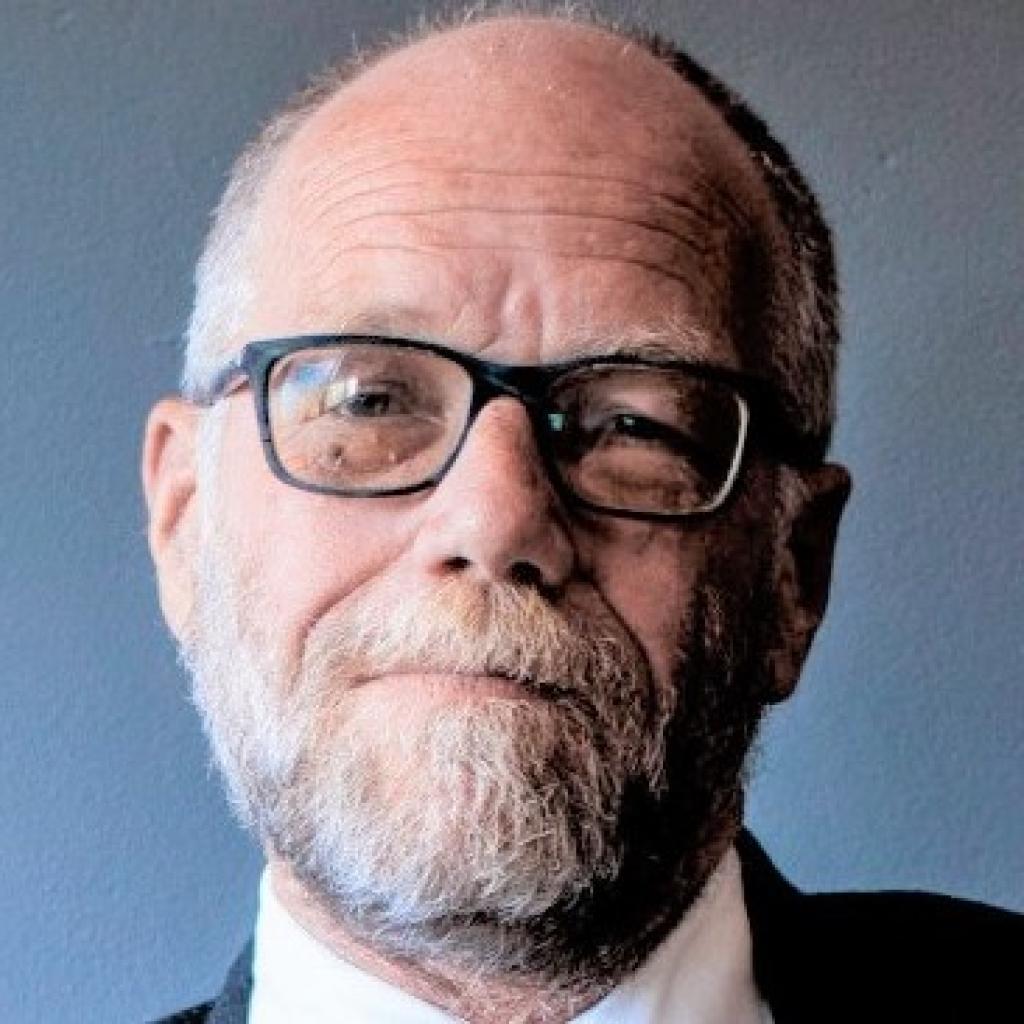Gain the strategic foresight to make better decisions
This internationally accredited MPhil Futures Studies will equip you with strategic foresight to make long-range decisions, mitigate risk and sense opportunities – essential competencies for strategists and senior leaders. You will learn how to respond to change and to make the right decisions to thrive as a result of change.
As the only programme of its kind presented in Africa, and one of only a few in the world, it will equip you with high-level competencies to react meaningfully to growing complexity in the organisational environment while taking Africa and South Africa’s unique developmental challenges into account.
A transformative learning experience awaits you – particularly if you see your future self as a strategist, long-range decision maker, consultant or corporate leader.
Master's
MPhil Futures Studies
Blended
Programme dates (2024):
Year 1:
- 1 February – 5 September (Thursdays from 16:00-20:15)
Year 2:
- Research assignment
Fees: R211 363 (2024)
Duration: 2 years
*The Business School reserves the right to change programme dates and fees.
Programme details
- NQF level: 9 (180 credits)
- International accreditation: AACSB, EQUIS
- Format: Year 1 comprises 5 core modules delivered in 25 weekly sessions (on campus or online). Year 2 comprises the research assignment.
- Course material: Comprehensive course outlines, text books and journal articles
- Language of tuition: English
Place of delivery
The on-campus classes are presented at Stellenbosch Business School’s campus in the Tyger Valley business district in northern Cape Town while the online classes are presented via the high-tech classrooms where you join the class via an internet-linked laptop in real time and from anywhere in the world (blended learning format).
Course Structure and Content
Gain the strategic foresight to make better decisions: Stellenbosch Business School’s internationally accredited MPhil Futures Studies is particularly suited to help you unlock the skills you need to find direction in an ever-changing world. It will equip you with strategic foresight to make long-range decisions, mitigate risk and sense opportunities – essential competencies for strategists and senior leaders. You will learn how to respond to change and to make the right decisions to thrive as a result of change.
Remain relevant by investing in your career: If you are a strategist, managing director, CEO or a manager or specialist involved in strategic planning, the MPhil Futures Studies will give you a unique advantage in your industry. It will also benefit you if you want to play a role in creating a better future for South Africa and for Africa. This is the only programme of its kind presented on Master’s level in Africa, and one of only a few in the world.
Study while you work: The flexible design of the programme allows you to study while you work. In Year 1, you need to attend 25 weekly sessions (on campus or online). In Year 2 you need to complete a research assignment.
Futures Studies serves the needs of individuals, groups, organisations and governments that wish to gain an understanding of possible changes in their long-term future and to respond accordingly. This is particularly important in the light of Africa’s and South Africa’s imperative to raise the quality of life. This, in turn, requires the development of individuals and institutions with a holistic understanding of the social, ethical, political, technical and economic forces shaping the future. This programme will therefore benefit:
- Strategic planners, managing directors, CEOs and those involved in strategic planning over five to 20 years and longer
- Anyone who wants to play a role in creating a better future for South Africa and for Africa.
This programme will prepare you for senior-level positions in public and private corporations, in government, financial institutions and global institutions.
The format in which the MPhil Futures Studies is presented allows you to study while you work.
Year 1: Do five core modules delivered via on-campus or online classes
The course content is presented through a series of lectures and workshops. This is where you can choose between on-campus classes and online classes. The weekly classes (4 hours per session) are presented at the Business School’s campus. The online classes, delivered synchronously with the on-campus classes, can be followed via an internet-linked laptop from anywhere in the world.
Year 2: Research assignment
You need to complete a research assignment during the second year of enrolment.
Year 1 of this programme consists of 5 modules:
|
Module name |
Credits |
Core outcomes |
|
Scanning the Environment |
30 |
Methods of environmental scanning and stakeholder analysis; Scenario development as a participative process; Applications of futures research in strategic management and planning; Normative methodologies; Creative thinking and innovativeness. |
|
Quantitative and Qualitative Futures Studies Methods |
20 |
Foresight Research; Quantitative research techniques; Qualitative research techniques; Application of systems thinking; Multidisciplinary research applications in foresight development. |
|
Demography |
10 |
General introduction to demography; Mortality and migration; Urbanisation and urban growth; Population composition and growth; Effects of population on specific social aspects in developed and developing countries; Influence of HIV/Aids on the population; Population policy; Demographic surveys |
|
Technology Futures |
10 |
Enabling technologies; Technology trends; Management of technology; International policies on Science and Technology |
|
Applied Futures Studies |
30 |
The profession of futures research; Consulting practice and procedures; Project management; Design of participation in futures research and the application of its results in strategic management and planning |
|
Research assignment |
80 |
|
You need to complete a research assignment during the second year of enrolment which counts for 80 of your total course credits. This assignment gives you the opportunity to apply the knowledge and skills you have acquired to a field of your choice.
This MPhil will equip you with long-range decision-making competencies
to mitigate risk and sense opportunities –
essential competencies for strategists and senior leaders
Programme Fees
Application fee for 2024
Tuition fees for 2024
Important:
- Payment of full programme fees for South African students: Students can pay the full programme fees upon registration, or they can pay 80% of the annual fees by the end of May and the balance of 20% by the end of September.
Payment schedule (calculated on outstanding fee after deposit payment):
28 February - 31 May - 20% x 4 months (80%)
30 June - 20 September - 5% x 4 months (20%) - Payment of full programme fees for international students: International admitted students pay 50% of the annual fee as deposit. The remainder is due one month before commencement of the programme. The South African exchange rate favours international students.
- Deposit: All students pay a deposit on acceptance of admission. South African students must pay a set deposit on admittance. International admitted students pay 50% of the annual fee as deposit. The deposit payable is non-refundable and will be deducted from the total programme fees.
- Application fee: The application fee must accompany the application. The application fee is non-refundable.
- Additional fees for international students: International students pay an International Registration Fee (IRF) per academic year. Students from countries other than those in the Southern African Development Community also pay an International Tuition Fee (ITF) (i.e. students from SADC countries are exempt from the ITF).
- Fees for 2026: The fees for the second year of enrolment will be adjusted to make provision for annual price increases.
- Study materials: Some core textbooks and other study material will be provided to students and the cost thereof is included in the tuition fees. These books become the property of the student.
- Travel and accommodation: Students are responsible for their own travel and accommodation arrangements and costs.
- Programme sustainability: The Business School reserves the right not to present a programme or programme stream if the enrolment numbers are not sufficient to make the programme sustainable.
- Fee changes: Stellenbosch Business School reserves the right to change the fees at any time.
Please use your Student Number as Reference | Email proof of payment to [email protected] | Quote your student number in all correspondence.
Admission Requirements
Admission requirements
PGDip Futures Studies (requirement), with an average of at least 65%
Additional requirements
All modules must be passed for the degree to be conferred
Assessment
- Pass the prescribed assessments in all the modules
- Submit a research assignment that is up to standard
Before you start
- About the online application process: The online application form consists of various sections. To progress from the one section to the next, all the information in the current section must be completed and accepted by the information management system. You will be able to complete the form in steps without losing information (i.e. you do not have to complete the application form in one sitting). The application process is the same for South African and international students. It is best to use Google Chrome as web browser when completing your application.
- Academic admission requirement: Ensure that you have your Stellenbosch Business School PGDip Future Studies degree certificate (certified) and transcript available for upload to comply with the application requirements.
- Checking the status of your application: You can go back to your application and check the status of your application.
- Vetting process: All degrees undergo a formal vetting process to eliminate fraudulent applications.
The application process
Click on the APPLY NOW button and complete the online application form by completing each of the required sections. You also need to upload the following supporting documentation:
- Completed and signed application form
- Certified copies of all academic records and degree/diploma certificates
- Detailed CV
- A copy of your ID (or passport for non-South African students)
- A marriage certificate (where the applicant’s new surname does not match that on the degree certificates)
- Consent form to verify your qualifications (please download, complete and upload the form in order for Managed Integrity Evaluation (Pty) Ltd to verify your qualification documents)
- Signed declaration form
Payment of your application fee can be done online:
- Bank details: Bank: Standard Bank; Type of account: cheque account; Account name: US Business School; Account number: 073003069; Branch name: Stellenbosch; Branch code: 050610; Beneficiary name: Stellenbosch University; SWIFT code: SBZAZAJJ.
- Enquiries about payments: Please send an e-mail to [email protected].
What happens next?
Your application can only be assessed by the selection panel if it is accompanied by your completed online application form and all the supporting documents, and if you have paid the application fee. The outcome of the selection process will be made known within 30 days or as soon as possible thereafter. If you are uncertain whether your application is complete and is being processed, contact [email protected] for assistance.
Deadlines for MPhil Futures Studies applications:
- 30 November for applicants from South Africa
- 30 November for applicants from visa-exempt SADC countries, and the rest of the world
Also note the following:
- Study permits for international students: Obtaining a study permit (study visa) from the South African authorities can take up to 12 weeks from the date of being offered a place on a programme at the Business School. An early start with the application process is therefore recommended.
- Multiple-entry visas: Students from non-SADC African countries and other countries with visa requirements who need to apply for study visas can obtain a letter from Stellenbosch Business School confirming the duration of registration at the Business School. This will help students to obtain multiple-entry study visas in case of modular studies.
Study visa requirements for international students
All residential students who are non-South African citizens and are studying at Stellenbosch Business School require a study visa. Prospective students should contact their nearest South African Mission (South African Embassy, Consulate or High Commission), normally in their country of origin, to enquire about the requirements for study visas for South Africa. Applicants are required to present themselves in person so that biometric data may be captured. All international students can contact the Business School’s International Affairs Office at [email protected] for assistance. All international students must hold a valid visa for their intended activity prior to entering South Africa.
Notes on obtaining a study visa
- Obtaining a study visa from the South African authorities takes approximately 12 to 16 weeks from the date of application. However, some missions may process applications sooner. Sufficient time should be allowed for study visa applications to be processed.
- Your study visa application should include a copy of the letter offering a place on the Business School’s study programme. This letter will be provided by our Centre for Academic Administration once the application has been approved. A place on the programme must be confirmed before a study visa application can be considered by the South African Department of Home Affairs. Students should not proceed to Stellenbosch University or its Business School without a valid study visa.
- Although applicants are expected to determine exactly what they require to apply for a study visa, they can be expected to provide the following, among others: a police clearance certificate, proof of medical insurance recognised in South Africa, a radiology report, proof of sufficient funds, and an admission letter from Stellenbosch Business School. Your nearest South African Mission will be able to advise in this regard. The onus falls on the student to make sure that he/she submits a complete application pack.
- All documents should be certified and translated into English before submission (in order not to delay the outcome of the application).
Contact Us
Please contact us if you need more information on this programme or the application process:
Programme enquiries and support with the applications process
Customer Liaison Officer
Telephone: +27 (0) 21 918 4246
Email: future@stellenboschbusiness.ac.za
Admission and registration enquiries
Joanne Sleigh
Telephone: +27 (0) 21 918 4239
Email: joanne@stellenboschbusiness.ac.za
Related Events
Stellenbosch Business School | Virtual Open Week 2023
Kampala, Uganda Information Session
Kigali, Rwanda Information Session
Frequently Asked Questions
Futures Studies is about acquiring strategic foresight to make long-range decisions in order to mitigate risk and identify opportunities. You will gain an understanding how various futures will unfold so that you can make better decisions. Futures Studies analyses the interaction between a wide range of variables or forces, and distils from these forces those issues that will affect the future of a country, government, entity or individual. It studies the world of economics, politics, technology, demography, social values and other subject fields, both locally and globally. It therefore equips decision makers with ways to deal with change and to make the right decisions to survive but preferably thrive in a changing world.
If you play a role in the direction of a business, the decisions you make must be aligned with where the business world is going. Futures Studies will enhance your understanding of possible changes in the long-term future and equip you with the correct methods to respond accordingly. This will enable you to make better use of opportunities and also to contain risks more effectively.
The programme is therefore aimed at strategic planners, managing directors, CEOs and anybody involved in strategic long-term planning, and also to anyone who wants to play a role in creating a better future for South Africa and for Africa. The content of the programme is aligned with the professional and intellectual skills required of futurists. You will, among others, acquire consultation and facilitation capabilities, and learn how to manage projects and do stakeholder analysis, environmental scanning, scenario planning and strategic planning. This prepares you for senior-level positions in public and private corporations, in government, financial institutions and global institutions.
This programme runs over two years. Year 1 comprises 5 core modules delivered in 25 weekly sessions (on campus or online). Year 2 comprises the research assignment. The structure of the programme enables you to study while you work.
No, one would need to complete the Postgraduate Diploma Futures Studies first.
The deadlines for MPhil Future Studies applications are 30 November for applicants from South Africa, visa-exempt SADC countries and the rest of the world, and 31 October for Recognition of Prior Learning applicants.
Obtaining a study permit (study visa) from the South African authorities takes up to 12 weeks from the date of being offered a place on a programme at Stellenbosch Business School – an early start with the application process is therefore recommended. Recognition of Prior Learning candidates (all programmes) need to apply by 31 October each year. Late applications after the closing dates will only be considered in exceptional circumstances.
The course content is presented through a series of lectures and workshops, delivered in blended learning format. With blended learning you can choose between on-campus classes and online classes. This makes the programme convenient and accessible for busy businesspeople and executives. It also means you can study while you work. Students need to be thoroughly prepared for blended learning lectures so as to extract optimal benefit from contact sessions.
For the course-based part of the programme, you can choose between attending weekly classes (4-hour classes) on campus or, alternatively, downstreaming the classes by logging in and participating online using your own computer or device.
Find more information about Blended Learning’s combination of technology with a strong human touch here.










